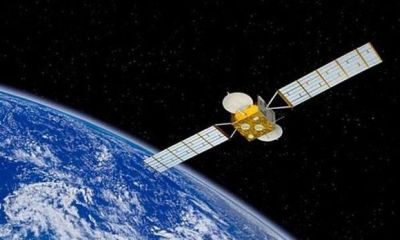 | « Back to article | Print this article |
 The Comptroller and Auditor General on Friday rapped space agency Indian Space Research Organisation for allowing a foreign private satellite service provider to park its satellite in an orbit slot meant for Indian satellites in violation of nation's SATCOM policy and extending "undue benefit" to a foreign firm.
The Comptroller and Auditor General on Friday rapped space agency Indian Space Research Organisation for allowing a foreign private satellite service provider to park its satellite in an orbit slot meant for Indian satellites in violation of nation's SATCOM policy and extending "undue benefit" to a foreign firm.
The audit watchdog in its latest report on scientific and environmental ministries and departments also stumbled upon disparities in the allocation of bandwidth to 22 states in EDUSAT utilisation programme as well as deficiency in the monitoring and evaluation of this ambitious e-learning programme.
The report also referred to instances of weaknesses in the procurement and contract management systems of some of the scientific institutions, resulting in unfruitful expenditure.
On the foreign satellite issue, the CAG said, “In the course of audit, it was observed that ISRO allowed Intelstat, an international private satellite organisation, to place their satellite at 55 E in an orbital location coordinated by the Indian administration. The foreign satellite was also allowed non-Indian coverage...
"It is evident that Indian Administration Coordinated orbital slots were to be used by Indian satellites. By allowing a foreign satellite to occupy the Indian slot, ISRO violated the country's SATCOM policy as well as International Telecommunication Union's radio regulations and thereby extended undue benefit to the foreign firm".
The panel noted that ISRO had leased 16 transponders from Intelsat for one year from February 2003 to February 2004 as a stop gap arrangement to ensure continuity of services of the Indian Communications satellite INSAT 2DT, which had stopped functioning since 2003. It was then that the foreign satellite was shifted to the orbital location of INSAT 2 DT.
The CAG said that although the replacement of satellite to INSAT 2DT was later launched in September 2003, ISRO allowed the Intelsat satellite IS 702 to continue to function from the same location. CAG-SPACE 2
The panel also observed that that ISRO signed another agreement with Intelsat in March 2004 as a back up to INSAT 3E free of charge.
"Intelsat was allowed to use INSAT's ITU filings for non-Indian coverage. The agreement, initially valid for five years up to March 2009, was extended seven times up to August 2011.
"It is pertinent to note that there was also no existing practice in ISRO to provide backup to operational satellites," the audit watchdog said.
It concluded that the ISRO thus allowed the use of a valuable Indian administration coordinated orbital slot, which was meant for Indian satellites, by a foreign private satellite service provided for non-Indian coverage thereby "violating" the country's SATCOM policy and ITU's regulations.
"In the proceess ISRO extended undue benefit to the foreign party," it said, noting that "an orbital slot, availability of which is scarce and hence is a valuable resource, is required to be used optimally and judiciously and also to be protected.
The CAG also observed disparities in the allocation of bandwidth of India's first thematic satellite dedicated exclusively for educational services to provide distance education service to remote areas of the country.
The panel said that while in 22 out of 35 states and union territories, the allocation of bandwidth was less than the decided average of 4.5 MHz, in the remaining ten, it was more than the the maximum of 6.6 MHz that was envisaged.
Interestingly even as the terminals to utilise bandwidth were not in place in four states--Assam, Goa, Manipur and Sikkim, a total bandwidth of 13.20 MHz was allotted to them, resulting in the idling of bandwidth, the CAG noted. Punjab and Haryana having less illiterate population were allotted higher bandwidth than states having more illiterate population.
The CAG noted that none of the 35 states and UTs achieved the envisaged level of 1200 interactive terminals for colleges and universities while in 13 states neither the networks nor interactive terminals were established.